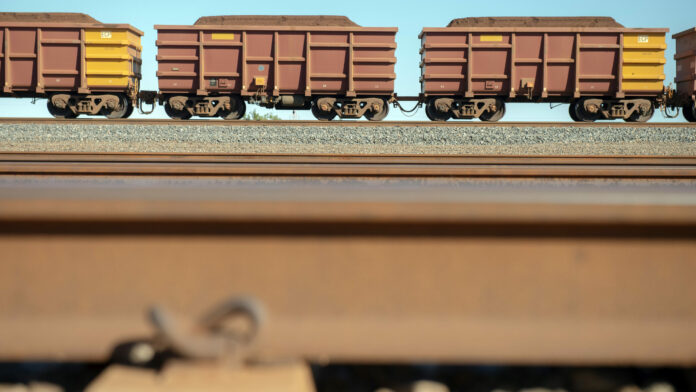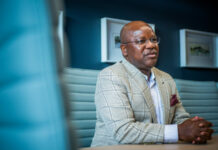
IRON ore exports from South Africa’s Northern Cape province have been disrupted this week, according to a statement by Transnet Freight Rail (TFR) which gave updates on three incidents of which two involved cable theft.
On Monday (June 5) 20 wagons loaded with iron ore derailed near Loeriesfontein in the Northern Cape. Repairs are expected to be completed on Thursday (June 8). Investigations into the cause of the derailment continue, said TFR.
In a second incident power was restored to a section of line linking Kumba Iron Ore’s Kolomela mine in the Northern Cape after 20 spans of cable were stolen on Sunday (June 4). Kumba is owned by Anglo American.
However, this line was disrupted by a separate incident in which a security patrol intercepted an attempted theft of copper cable on Tuesday evening. The thieves fled the scene leaving behind 280 metres of cut contact wire and 280m of canternary wire.
TFR said breakdown teams has been dispatched to this incident with repairs likely to be completed this evening.
In May, it was reported that TFR had asked the state to help it remedy chronic copper cable theft that has reduced operations by up to three quarters this month.
BusinessLive said the securing TFR’s network “is beyond us as a company”, citing Rudzani Ligege, managing executive for TFR’s Gauteng to Durban corridor. The 740km container corridor is used to transport agricultural and automotive goods, grain, fuel, chemicals, coal, manganese and chrome, said BusinessLive.
“I wouldn’t want to say we are losing the fight because when we put in the interventions there is a big difference in theft incidents … arresting people on the ground is just one intervention point. We also need to work on the convictions,” Ligege told the publication.
During the previous financial year, the container corridor lost 591km of cable due to theft with the amount spent on security interventions “going into the billions”, Ligege said, adding that the company has a budget of R1.4bn for security costs. But when a cable is damaged, TFR loses not only the cost of fixing it but also the customer’s trust.
“The loss to the economy is just exponential,” Ligege said.









